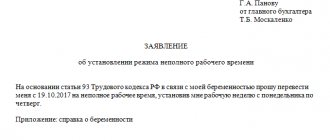Federal Law 230-FZ: application features
Federal Law 230-FZ on collection agencies, regulating the activities of collection organizations, was adopted by the State Duma of the Russian Federation on June 21, 2021. At the same time, this regulatory act came into force starting from July 3, 2021.
Since the entry into force of Federal Law No. 230, it has repeatedly undergone various changes. At the same time, the latest addition was made by the Law of the Russian Federation of December 8, 2021 No. 429-FZ.
Article 3 (legal regulation of debt collection activities) of Federal Law No. 230 was supplemented with paragraph 4. Within the framework of this norm, it is stated that decisions of interstate bodies that contradict the provisions of the Constitution of the Russian Federation cannot be executed on the territory of Russia. These contradictions must be eliminated in accordance with the procedure established by law.
Who are collectors and requirements for collection companies
The text of RF Law No. 230-FZ does not contain an interpretation of the concept of “collectors”. This word does not appear here. However, the following wording is used instead: “legal entities carrying out long-term collection work.”
REFERENCE. Despite the fact that the law does not officially use the word “collectors,” citizens and organizations preferentially use this term.
What is this law about - the main provisions of the law on collectors
The main goal of developing Law No. 230-FZ is to limit and prescribe a clear algorithm for the implementation of actions of the collector, which pose a potential threat to debtors.
Within the framework of this regulatory act, the following basic provisions are outlined:
- permitted methods of interaction with the debtor,
- prohibited collection methods
- list of requirements for collectors,
- conditions for limiting or terminating interaction with a person in debt,
- the procedure for sending responses to debtors’ requests,
- conditions that must be observed by organizations engaged in collection activities,
- other issues affecting the rights and interests of debtors.
State registration of all collectors and control over their activities
In accordance with paragraph 1 of Art. 12 Federal Law of the Russian Federation No. 230, an organization acquires the legal rights of a collector of overdue debts only after undergoing state registration. This is a mandatory procedure, as a result of which information about the collection agency is entered into the appropriate register. In this case, the applicant is issued a corresponding certificate (Appendix No. 2 to Order of the FSSP of the Russian Federation dated December 28, 2016 No. 823).
Dear readers ! To solve exactly your problem, contact our online consultant on the website. It's free. For any region.
Dear readers ! To solve exactly your problem, contact our online consultant on the website. It's free. For any region.
The general procedure for collectors to undergo state registration is described in special regulations approved by Order of the FSSP of the Russian Federation dated December 30, 2010 No. 550.
The activities of collection organizations are subject to federal state control, which is carried out by authorized departments. If there is one of the grounds described in paragraph 2 of Art. 18 Federal Law No. 230, an unscheduled inspection may be carried out against the collector without prior notice.
Strong restrictions on the actions available to collectors
The range of powers vested in collectors is greatly limited by the provisions of the law mentioned above. The general principles for implementing actions aimed at returning overdue debts are described in Chapter 2 of the Federal Law of the Russian Federation No. 230. The following issues are covered here:
- permitted methods of interaction with debtors,
- restrictions that apply to certain methods that collectors can use,
- requirements for the actions of collectors,
- conditions under which collectors must cease any contact with debtors and other issues.
The debtor may not contact the debt collector
According to the provisions of Art. 8 of the Law on Collectors, the debtor has every right to refuse to interact with the collector. To do this, he must prepare a written application (Appendix to Order of the FSSP of the Russian Federation No. 20) and send it to the creditor in one of the following ways:
- pass through a notary,
- send by registered mail,
- hand over personally to the creditor against receipt.
In addition, the same article provides for the debtor’s right to communicate with debt collectors through his official representative. In this case, the application will need to indicate the full name of this person and his contact information (postal/email address and telephone number). In this case, only a lawyer can act as such a representative.
ATTENTION. An application for refusal to interact with debt collectors must be sent to the creditor no earlier than 4 months from the date of delay on the outstanding obligation. Otherwise, this document will be considered invalid.
Regulations on the procedure for interaction between the debtor and the collector
All procedures that a collector can use when communicating with debtors are strictly regulated at the legislative level. This is expressed in the following points:
- the law describes an exhaustive list of procedures that a collector can apply,
- Federal Law No. 230 also specifies methods that are prohibited,
- in relation to individual actions of the collector, the conditions for their implementation are described (for example, this may include the frequency of calls to the debtor),
- the deadline for sending a response to an appeal received from a person in respect of whom a debt collection procedure is being conducted.
For the damage caused, the collector bears liability, including criminal liability.
In accordance with the provisions of Art. 11 creditors, as well as organizations attracted by them to collect bad debts, are liable for losses and moral damage caused to the debtor as a result of the use of illegal collection methods.
Thus, collectors may be punished under the following articles of the Code of Administrative Offenses of the Russian Federation:
- Article 14.57 – violation of legal requirements for the activities of organizations involved in the collection of problem debts. Types of violations: disclosure of the debtor’s personal data, use of illegal methods of interaction, absence of a collection agency in the state register, etc.
- Article 6.1.1 – battery (provided that such actions do not contain signs of a criminal offense).
In addition, collectors can be held criminally liable under Articles 115, 116 and 330 of the Criminal Code of the Russian Federation (minor harm to health, beatings, arbitrariness).
Borrower protection under the law on debt collectors
Law No. 230-FZ provides for various mechanisms to protect individuals from illegal actions by debt collectors. The main ones include the following:
- a clear distinction between legal methods of interaction with the debtor and prohibited actions,
- monitoring the activities of collectors by representatives of the FSSP (Federal Bailiff Service),
- carrying out unscheduled inspections against collectors,
- the debtor’s right to completely refuse any interaction with organizations involved in debt collection.
Contents of Law 230-FZ on collection activities
Where can I see the official text of 230-FZ point by point?
In order to familiarize yourself in detail with the provisions of the RF Law on Collectors, you must follow the following link - https://www.consultant.ru/document/cons_doc_LAW_200497.
Key change from July 1, 2021 in the new law on collectors
As noted above, Federal Law No. 230 regularly undergoes various changes and additions. Thus, the next change was made to this legislative act on July 1, 2021 by Law of the Russian Federation of November 12, 2019 No. 377.
The essence of this innovation is as follows: now creditors who have decided to involve third parties in the process of collecting overdue debts are required not only to notify the debtor about this, but also to enter the relevant information into the EFRSFYUL (website - https://www.fedresurs.ru).
This register should reflect the following information:
- details of the lender (bank, microfinance organization),
- details of the agreement concluded with the collector,
- information about the debtor,
- information about the organization that will handle the collection.
Situation in practice
Despite the fact that the rights and obligations of debt collectors are clearly defined by current legislation, in practice there are often cases of violation by such persons of existing rules. There are often cases when they:
- contact the debtor in other ways not provided for by law and agreement, for example, constantly calling work, talking with superiors about an existing debt, or transmitting information at the place of study;
- violate the rules of paragraph 2 of Article 6 No. 230-FZ, which do not allow the use of violence or other negative influence when collecting debt;
- ignore the statement of refusal to process personal data;
- carry out direct interaction with persons in respect of whom this is not allowed (clause 1 of Article 7 No. 230-FZ), for example, with disabled people of the first group, incapacitated, and so on;
- call and visit the debtor outside the established time frame. Paragraph 3 of Article 7 establishes that such actions must be carried out from 8 a.m. to 10 p.m. on weekdays, and from 9 a.m. to 8 p.m. on other days.
In such cases, it is recommended to seek protection of rights from law enforcement agencies, including the police and prosecutor's office.
What are the disadvantages of Federal Law 230 on debt collectors?
Despite the positive effect of Federal Law No. 230 for debtors, this regulatory act is still not without a number of shortcomings. They are expressed as follows:
- the introduction of a large number of restrictions regarding the actions of the debt collector casts doubt on the effectiveness of the pre-trial debt collection procedure,
- many prohibitions create certain difficulties in the activities of collectors, so there is a possibility that the latter will begin to look for new schemes for working with debtors that are not provided for by law,
- lack of real protection mechanisms for debtors in the law. This issue is regulated only by the provisions of Art. eleven,
- the absence of any interpretations and clarifications regarding the concept of “gross violation of the law”, which is mentioned in paragraphs. 4 clause 1 art. 16 Federal Law No. 230,
- The text of the law is difficult to understand for those without legal education.
What other innovations await collection activities - bills
It is planned that in 2021 the following innovations will appear in the Law of the Russian Federation regulating the activities of collectors:
- introduction of uniform rights and responsibilities for collectors, banks and microfinance organizations,
- the FSSP will have the right to issue fines to violators without trial,
- introduction into the legislative field of the concept of “robot collector”,
- telephone conversations will be assigned dialogue status,
- one of the official channels for interaction with debtors will be email,
- it will be possible to write a refusal or consent to interact with collectors through the Gosuslugi portal,
- housing and communal services debts are planned to be transferred for collection to collection companies,
- debt collection for utility services can be carried out without complying with the claims procedure,
- it is planned to introduce separate articles into the Code of Administrative Offenses and the Criminal Code of the Russian Federation, within the framework of which the types of punishments for collectors who have committed a violation will be described,
- assigning to collectors the obligation to record conversations with the debtor and retain this data for 2 years.
Rights of collectors under the new law
The law regulating the activities of debt collectors describes in sufficient detail their rights and obligations, as well as a list of methods that collectors are not entitled to use when interacting with debtors. This issue is discussed in more detail below in the text.
What do debt collectors have the right to do in relation to a debtor under the law?
If we analyze the provisions of Ch. 2 Federal Law of the Russian Federation No. 230, we can highlight the following rights vested in collectors:
- interact with the debtor in the following ways - phone calls, sending messages on social networks, sending written notices, personal meetings,
- contact the debtor’s relatives (with the latter’s written consent),
- file a claim with the court for the collection of overdue debts,
- involve third parties in the debt collection process,
- initiate legal proceedings on the issue of declaring the debtor bankrupt (if there are compelling reasons),
- hand over documents to bailiffs.
Prohibitions and restrictions of collectors by law
In addition to powers, the law also stipulates many restrictions and prohibitions for collectors. They concern the following points:
- calls, personal visits and sending messages to the debtor at the wrong time of day and more than a certain number of times (more about this is written below),
- calls from phone numbers that are not related to the collection agency,
- the use of illegal methods of influence on the debtor - the use of physical force, sending threats, destruction or damage to the property of the debtor, misrepresentation, etc.,
- interaction with the debtor in the presence of one of the conditions listed in paragraph 1 of Art. 7 Federal Law of the Russian Federation No. 230 (the latter is in hospital treatment, is a minor, etc.),
- attempts to contact the debtor in the event that he has written a written refusal to communicate with debt collectors,
- calls (letters, personal visits) to relatives of the debtor who did not give written consent to this,
- disclosure of personal information of individuals.
How many times can collectors call by law and what does 230-FZ say about it?
The Law on Collectors contains clear rules regarding the procedure for interaction with debtors. Collectors are required to observe a certain frequency, and also take into account the time of day and day of the week.
Limits on interaction with the debtor under 230-FZ
More detailed information about acceptable forms of interaction and the order of their application is reflected in the table below.
| Form of interaction | How and when is it allowed? |
| Phone calls | no more than 1 time a day, no more than 2 times a week, no more than 4 times a month. Time: on weekdays from 8:00 to 22:00, and on weekends from 9:00 to 20:00 Conditions: calls only from one number belonging to the collection agency |
| Sending messages in instant messengers, including voice messages | no more than 2 times a day, no more than 8 times a week, no more than 16 times a month. Time: from 8:00 to 22:00 (weekdays), from 9:00 to 20:00 (weekends). Conditions: the message must contain information about the collector, the amount and type of debt, and contact information of the collector |
| Personal meetings with the debtor | Once a week Time: on weekdays from 8:00 to 22:00, and on weekends from 9:00 to 20:00. |
| Sending written notices | Conditions: the letter must reflect the information listed in Art. 7 of Law No. 230-FZ. There are no restrictions regarding the time and frequency of sending |
How does Federal Law No. 230 protect debtors?
It is no secret that collectors conduct business with an eye on the 90s and people working in the system are stuck there for a long time.
But everything has changed, now it won’t be possible to work this way (by intimidating and threatening). Agencies, banks and employees bear not only civil, but also criminal liability for their actions.
For example, the law clearly states fines for violations of its provisions. Collection actions will be controlled by Art. 14.57 Code of Administrative Offenses of the Russian Federation:
- Organizations not included in the register - 200 thousand.
- Spacecraft registered in the register - from 50 to 500 thousand.
- Illegal activities of a CA - 2 million rubles + 1 million is imposed on the manager.
Also, responsible persons who committed unlawful actions by agencies may be disqualified from office for a year, and the activities of organizations suspended for 90 days.
Important! Agencies that are not registered, as well as persons engaged in illegal collection, are advised to refrain from communicating with debtors. This will be cheaper than paying 200-500 thousand for each complaint.
Debtors and borrowers are required to know and understand their rights. As soon as judicial practice on punishing CAs is normalized, organizations will solve problems in the legal field.
Main provisions of the law:
- calls no more than twice a week;
- meetings with the debtor no more than once a week;
- the debtor has the right to revoke consent to transfer the debt to third parties;
- the collector has no right to exert mental and physical pressure;
- The collector must not have a criminal record.
Do debt collectors go to court and what can the debtor do?
According to Art. 196 of the Civil Code of the Russian Federation, the general limitation period for outstanding debts is 3 years. During this period, creditors must have time to initiate legal proceedings. This rule applies to the following categories of collectors: banks, microfinance organizations, collection agencies.
Thus, debt collectors have the right to file a lawsuit to collect overdue debts. They can do this in the following cases:
- when purchasing problem debts from a creditor under an assignment agreement (assignment of the right of claim),
- if there is such authority in the text of the agency agreement concluded with the creditor.
IMPORTANT. In practice, most often, going to court for debt collectors is a last resort measure against the defaulter. Usually they resort to it if other methods of collection have not helped.
If debt collectors have initiated legal proceedings, the debtor can do the following:
- petition the court to cancel or reduce the accrued penalty,
- request a deferment on debt repayment,
- insist on providing more convenient conditions for debt repayment in view of their difficult financial situation, etc.
Debtors' rights under the new law: how to protect your interests
In accordance with the provisions of Law No. 230-FZ, persons whose debts are transferred to collectors are endowed with the following rights:
- refusal of any contact with collectors,
- transfer of authority to interact with debt collectors to your representative (lawyer),
- prohibition on interaction between debt collectors and relatives of the debtor,
- sending a complaint to the authorized bodies in case of violation of rights and interests by collectors,
- ensuring your defense by filing objections with the judiciary,
- initiation of bankruptcy proceedings (if an individual has no ability to pay his debts),
- filing a statement with the police in case of receiving threats, damage to property by debt collectors and other illegal actions.
What prohibitions and restrictions for the work of collectors are there in Law 230-FZ
We described above the restrictions on the number and time of interaction methods. But there are a number of additional prohibitions that collectors are required to observe during the collection process:
- it is prohibited to disclose personal information about the defaulter, including via the Internet;
- you cannot use illegal actions and methods (threats, blackmail, insults, violence, extortion, theft or damage to property);
- you cannot apply for collection to persons other than the defaulter himself (except for co-borrowers and guarantors);
- It is prohibited to work to collect debts without a certificate, or after exclusion from the FSSP register;
- It is not permitted to continue collection if the defaulter has filed for bankruptcy or declared refusal to cooperate.
Understanding whether debt collectors are violating these prohibitions is not always easy. For example, if debt collectors openly threaten or commit obvious illegal actions, you need to immediately file a complaint, contact the FSSP or the Ministry of Internal Affairs. However, threats and pressure are often hidden.
To determine whether the actions of debt collectors comply with the law, you can consult our lawyers. We will analyze the situation, give recommendations and advice on further actions.
(18.0 kb)
Who regulates the actions of debt collectors and where to complain
The government body authorized to control the activities of collection companies is the Federal Bailiff Service. Violation of the law may entail the following consequences:
- carrying out unscheduled inspections,
- bringing the perpetrators to administrative responsibility,
- criminal proceedings,
- exclusion of the company from the state register.
How should a borrower deal with unscrupulous collectors?
By protecting his legitimate rights and interests from the actions of unscrupulous collectors, the debtor can take the following measures:
- write a complaint to the regulatory authorities,
- file a lawsuit against the violators.
REFERENCE. Before taking any more radical measures, you should try to resolve the issue with the debt collectors yourself. To do this, you need to clearly state your position (best in writing) with references to the specific rules of law that they violate.
How and where can you complain about debt collectors?
| Authority to which a complaint can be sent | Link to official website | How can a debtor be helped? |
| FSSP | https://fssp.gov.ru/ | deprivation of the collector's certificate of registration, exclusion from the register, initiation of an administrative/criminal case (within competence) |
| Roskomnadzor | https://rkn.gov.ru/ | blocking calls and SMS collectors, sending the signal to the FSSP |
| Central Bank of the Russian Federation | https://www.cbr.ru/ | deprivation of a license, sending an order to eliminate the violation |
| Ministry of Internal Affairs of the Russian Federation | https://xn--b1aew.xn--p1ai/ | initiation of administrative/criminal proceedings, visiting the crime scene |
| Prosecutor's office | https://www.genproc.gov.ru/ | issuing an order to eliminate violations, transferring the case to initiate an administrative/criminal case |
| SRO "NAPKA" | https://napca.ru/ | compensation for damage caused, exclusion of collectors from the list of SROs |
Samples of complaints against debt collectors (collection agencies)
complaints about debt collectors:
Application to the prosecutor's office
applications to the prosecutor's office against collectors: zhaloba-v-prokuraturu-na-kollektorov
FSSP complaint against debt collectors
An example of how to write a complaint to the FSSP (bailiffs) against debt collectors: zhaloba-pristavam-na-kollektorov
How to complain about debt collectors - sample complaints
If the debt collector complies with the requirements of 230-FZ, there is no point in filing a complaint. However, if the prohibitions and restrictions specified above are violated, the debtor has the right to protect his interests.
To do this, you can use the following options:
- file a complaint with the FSSP unit (bailiffs can be contacted for any violations of Law No. 230-FZ);
- file an appeal to the prosecutor's office (if the law has been violated);
- send a complaint to SRO "NAPKA";
- file an application with the Ministry of Internal Affairs if the actions of the tax collector are considered to be part of the Criminal Code of the Russian Federation or the Code of Administrative Offenses of the Russian Federation.
complaints about debt collectors:
Application to the prosecutor's office (79.1 KB)
FSSP complaint against collectors (18.5 KB)
Report to the police regarding threats (44.0 KB)
Legal advice.
If a debt collector behaves incorrectly, commits insults or other violations, we recommend contacting the head of his agency. Often ordinary specialists break the law on their own initiative, which management is not aware of. Direct contact with the central office may be more effective than filing a complaint with the FSSP or another body.
If you are faced with a violation of rights by debt collectors, contact our lawyers. The faster you begin to defend your interests, the more defense options you can use. We will help even in the most difficult situation!









